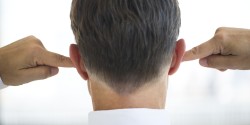In spite of the “high” effects opiate abuse brings, these drugs drain the body’s vitality over time. Physical withdrawal episodes and disorientation most characterize the less favorable aspects of drug abuse, and yet addicts don’t seem to mind these discomforts as long as needed drug supplies remain available. While this may seem like the worst …
The Consequences of Denial in Opiate Addiction & When to Throw in the Towel
In spite of the “high” effects opiate abuse brings, these drugs drain the body’s vitality over time. Physical withdrawal episodes and disorientation most characterize the less favorable aspects of drug abuse, and yet addicts don’t seem to mind these discomforts as long as needed drug supplies remain available.
While this may seem like the worst aspect of addiction to the regular drug user, addiction per se has very little to do with the body’s need for the drug. By far, denial and the consequences that result become the worst aspects of an opiate addiction problem. According to the Florida Institute of Technology, denying that a drug problem exists is considered the hallmark of opiate addiction and addiction in general.
In effect, denial plays an essential role in supporting continued drug use. As physical withdrawal effects perpetuate continued drug use through the body, denial fulfills the same purpose within the mind. Unless some form of needed treatment help is sought out, a person will likely have to hit rock bottom before denial can be seen for what it is.
The Opiate Addiction Mindset

The opiate addiction mindset makes you focus on only the good feelings you achieve by using drugs, while ignoring the dangers.
The opiate addiction mindset has to do with the belief systems, emotional responses and behaviors that support an addiction problem. In effect, the addiction mindset creates a lifestyle that’s specifically tailored to a person’s ongoing drug needs, according to Stanford Medicine. Characteristics of this lifestyle may include:
- Scheduling your daily activities around getting needed drug supplies
- Putting aside a designated time for using drugs
- A social circle made up of like-minded individuals
- Lying to friends and loved ones to protect or hide one’s drug use
- Thinking about or obsessing over your next drug “fix”
Ultimately, the opiate addiction mindset dictates a person’s priorities and motivations within any given day.
The Purpose of Denial
Denial in opiate addiction develops out of the belief systems that form as opiate effects warp the brain’s cognitive functions. More specifically, denial works to camouflage the damaging effects of drugs, allowing a person to focus on the “benefits” of drug use, such as stress relief and feeling happy. Meanwhile, the brain chemical imbalances brought on by opiate abuse continue to worsen and further strengthen the mind’s denial mechanism. The longer a person continues to engage in drug abuse, the stronger denial becomes.
Consequences of Denying Opiate Addiction
Someone living with opiate addiction has essentially lost the ability to see the problems that result from drug use. Over time, a person’s life gradually falls apart due to his or her inability to acknowledge a drug problem exists.
Depending on a person’s life circumstances, the consequences that result from denial may take the form of:
- Job loss or problems at work
- Declining health
- Decline in mental health, such as feelings of depression or persistent anxiety
- Poor hygiene and grooming
- Financial difficulties
- Problems with the law, such as DUIs
- Relationship problems or losses
When to Seek Treatment
Once an opiate addiction problem reaches a certain point, a person may well have to hit rock bottom in order to see the problem for what it is. Events, such as divorce, personal tragedy or losing one’s home may have to take place before a person takes the necessary steps to get well. Confronting denial early on can help in avoiding much of the frustration and heartache opiate addiction breeds.
If you or someone you know struggles with opiate abuse and have further questions about addiction or need help locating a treatment program in your area, please don’t hesitate to call our toll-free helpline at 800-934-1582(Sponsored) to speak with one of our addiction counselors.
the Take-Away

